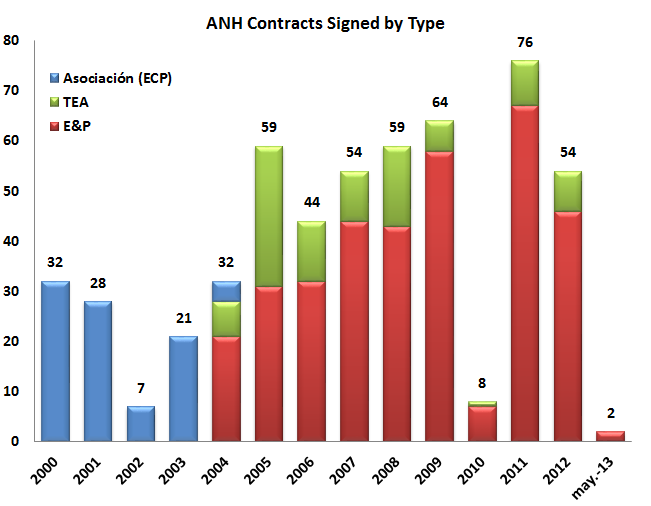A chain of events set off by a truck loaded with 230 barrels of crude crashing on a Putumayo highway which led then to a spill which reached the Magdalena river, has moved local authorities to ban a number of transport companies from operating and heavy trucks from using their normal routes in Huila.
Ecopetrol (NYSE:EC) is launching a pilot plant that will implement a chemical recovery technology in its 28-year-old San Francisco field as part of a larger strategy to increase production in mature fields.
The USO republished a press release from the office of Colombian Senator Alexander Lopez, in which he highlights a report issued by US congressional members that decry labor conditions in Colombia.
A break in UK oil producer Perenco’s pipeline caused 15 barrels of oil to leak into a nearby stream in Casanare, affecting the water supply of the Aguazul and Maní municipalities, and the local environmental management agency has called for the National Environmental Licensing Agency (ANLA) to intervene.

Incidents near areas of interest to the oil and gas industry were the same as last week at 25 below recent and long-term averages. However, non-Armed Forces incidents were about double the average at nearly 1/3 of all reports. This is our indicator of increased guerrilla-initiated activity. Correspondingly, our 4-week Moving Average incident count was down to 29.3 and the 52 week average was down although essentially unchanged at 33.3 incidents per week.

The National Hydrocarbons Agency (ANH) has set its sights on the 2014 Round to award new E&P contracts as a potential boost to investment in the hydrocarbons sector.
How much has Colombia’s armed conflict cost the country? A true number is for the most part impossible to calculate, but just on defense spending a recent study estimates that number to be at least CoP$220T (US$114B) just in the last 10 years.
The Association of Colombian Oil Engineers (Acipet) says that there is a deceleration occurring in the oil industry resulting from the saturation of investment and the price of crude internationally.
The economic model used to determine the price of fuel for the consumer is set to be a central theme for debate as Colombia moves into an election year, but several experts asked by the local press concur that the main refinery producer, Ecopetrol (NYSE:EC) will continue producing fuel regardless.
Oil from a rupture along the Transandino Pipeline (OTA) on the Colombia-Ecuador border has leaked into the banks of the San Miguel river causing contamination and requiring intervention from Ecuadorian NOC Petroamazonas.